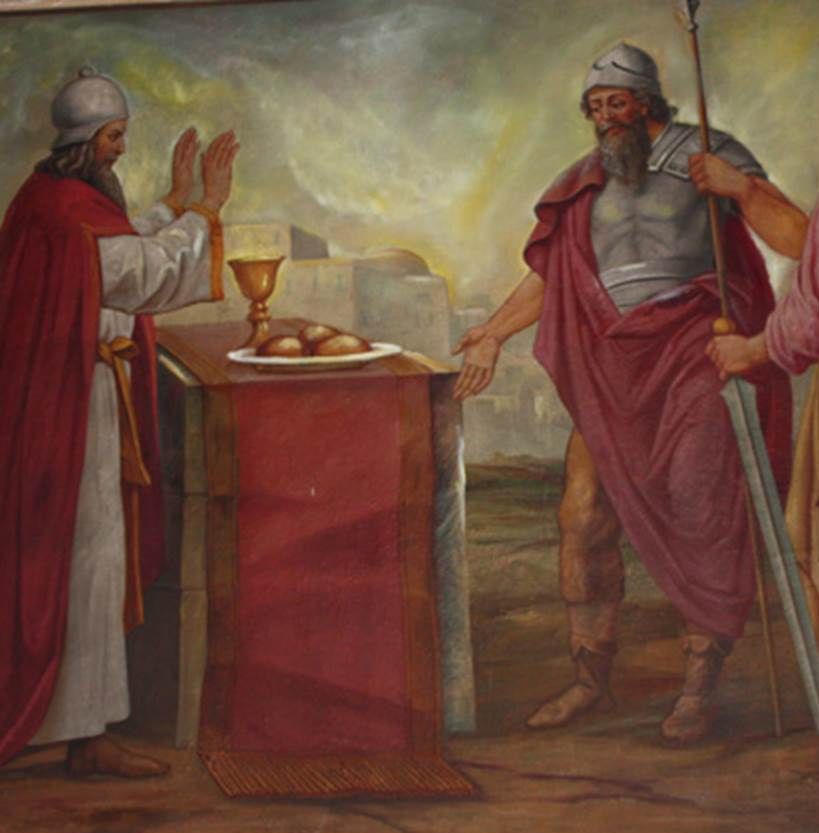Bishop Oyedepo is the founder and leader of The Winners’ Chapel in Nigeria. He claims tithing is a covenant of the kingdom of God. This suggests that tithing is required for Christians to participate in God’s kingdom. Is this true? We discover in the Bible that God didn’t create any covenant based on the tithe.
Please note: A Ghanaian news outlet published comments Bishop Oyedepo has made about tithing. Over the next few weeks, I will deal with each statement. The point is to determine whether his teachings are true or false.
Let’s get into it.
Table of Contents
- Listen to Podcast
- The Meaning of a Covenant
- The Tithe Is Not Your Covenant
- The Mosaic Law Is a Covenant of Obedience
- The New Testament Is a Covenant of Faith
- Summary
- Break Free From the Tithe Deception
Listen to Podcast
The Meaning of a Covenant

Before diving deeper into the subject, we must define key terms: tithe and covenant. A biblical tithe is 10% of crops and livestock given to the tribe of Levi. The modern-day tithe is 10% of a Christian’s income that’s given to the church.
Now, what is a covenant? It’s a contractual agreement made between two or more parties. To address the issue of whether tithing is a covenant of God’s kingdom, we must ask this question:
Did Father Yah ever establish a covenant with His people based solely on the tithe? And that’s the question I’m answering from a biblical perspective.
The Tithe Is Not Your Covenant
There is no such thing as a tithe covenant in the Bible. For example, there are five significant covenants in the Bible, and they’re not based on the tithe. The five major covenants include the following:
• Noahic
• Abrahamic
• Mosaic
• Davidic
• New Covenant
In Noah’s covenant, God promises Noah He will never again destroy the earth with a flood (Genesis 9:8-17).
In the Abrahamic covenant, God promises Abraham that He’ll make him the father of many nations and bless him with the land. The exchange was for Abraham to believe in God’s promise (Genesis 12:1-3).
Next is the Mosaic Covenant (Exodus 19 & 24). This covenant is made with Moses and the children of Israel. Here God claims the Hebrew Israelites as his people. The Lord says you are my people, and I am your Lord.
Plus, it’s a conditional covenant where the Lord promises the Hebrew Israelites blessings if they are obedient to the Law of Moses (Exodus 19:5). Otherwise, they would be cursed for their disobedience. So the basis of the Mosaic Law Covenant is obedience, not tithes.
Then there is the Davidic covenant (2 Samuel 7; 1 Chronicles 17:11-14; 2 Chronicles 6:16). With this covenant, the Most High promises David that he will have a descendent who will serve as king over the Hebrew Israelites. Again, we see a covenant based on God’s promise.
Finally, the New Covenant is the culmination of the previous covenants. It’s fulfilling prior promises, such as the forgiveness of sins, the renewal of the heart, and an intimate relationship with the Most High (Jeremiah 31:31-34, Luke 22:14-23).
Jeremiah 31:31-34
King James Version
31 Behold, the days come, saith the Lord, that I will make a new covenant with the house of Israel, and with the house of Judah:
32 Not according to the covenant that I made with their fathers in the day that I took them by the hand to bring them out of the land of Egypt; which my covenant they brake, although I was an husband unto them, saith the Lord:
33 But this shall be the covenant that I will make with the house of Israel; After those days, saith the Lord, I will put my law in their inward parts, and write it in their hearts; and will be their God, and they shall be my people.
34 And they shall teach no more every man his neighbour, and every man his brother, saying, Know the Lord: for they shall all know me, from the least of them unto the greatest of them, saith the Lord: for I will forgive their iniquity, and I will remember their sin no more.
Luke 22:20
New International Version
20 In the same way, after the supper he took the cup, saying, “This cup is the new covenant in my blood, which is poured out for you.[a]
Of course, Yeshua Hamashiach (Jesus the Christ) established this New Covenant through His death, burial, and resurrection. We see with the biblical covenants that each is based on promises, faith, and obedience, not the tithe.
The Mosaic Law Is a Covenant of Obedience
The tithe is part of the Mosaic Law Covenant. However, the tithe is not the basis of this covenant. What’s the foundation? It’s obedience. It’s ancient Israel’s obedience to the 613 commandments of the Mosaic Covenant.
The Lord never promised Hebrew Israelites blessings for tithing in and of itself. Tithing alone didn’t guarantee blessings from God under the Mosaic Law Covenant.
Tithing alone didn’t guarantee blessings from God under the Mosaic Law Covenant.
R. RENEE
The New Testament Is a Covenant of Faith
Faith is a covenant of the kingdom of God, not tithing. The Bible teaches us that faith in Yeshua and his sacrifice on the cross is the foundation of the New Covenant. It’s your faith in the Most High that keeps you connected to Father Yah’s kingdom. For the New Testament believer, God doesn’t want tithes. What He desires is your unfailing faith.
R. RENEE
Faith in Yeshua is the foundation of the New Covenant.
Summary
Is tithing a covenant of the kingdom of God? No, it’s not. God’s biblical covenants were based on promises, faith, and obedience. God gave His people promises. In return, he required obedience and faith.
We see this with the five major types of covenants of the Bible: Noahic, Abrahamic, Mosaic, Davidic, and the New Covenant.
Tithing is not the basis of any of these covenants. While the tithe is one commandment of the Mosaic Law Covenant, it wasn’t the sole reason for ancient Israel’s blessings. These blessings were conditional. The Lord required obedience to all 613 commandments of the Mosaic Covenant.
We learn from biblical covenants that God wants His people to have faith in Him. He expects obedience to His instructions. Additionally, He desires that we acknowledge Him as a promise keeper. Faith is what the Most High requires from us, not tithes.
Break Free From the Tithe Deception

Discover the truth about tithes the church doesn’t want you to know. Go here.
Source: “Tithing Isn’t A Church Doctrine, It’s A Covenant Of The Kingdom” Bishop Oyedepo“








